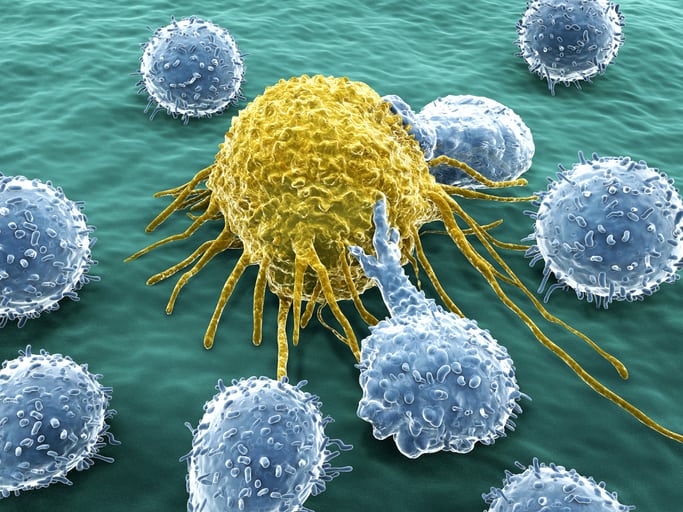[xyz_lbx_custom_shortcode id=5]
According to recent reports from national and international research teams, approximately one-third of all cancers can be prevented by maintaining a healthy weight, eating a healthy diet, and exercising regularly. Published studies have indicated that obesity plays a major role in cancer development through a number of biological mechanisms. Since the American Cancer Society (ACS) last published guidelines on nutrition and physical activity for cancer prevention in 2006, there has been mounting evidence addressing the role of obesity in the development of cancer. While it is not a new concept that daily exercise is important to helping prevent cancer, what has emerged in the literature is that prolonged sitting time (eg, watching television or sitting at the computer) also appears to significantly increase risks.
Educate Patients on Cancer Prevention
In the CA: A Cancer Journal for Clinicians, the ACS published an update to the 2006 guidelines that focused on reducing cancer risk with healthy food choices and physical activity. “The new recommendations emphasize that any level of positive change in diet or exercise is a step in the right direction to encourage patients to achieve optimum weight and exercise levels,” says Elisa V. Bandera, MD, PhD, who was a coauthor of the guidelines. “The loss of only a few pounds for obese and overweight people is beneficial. Small changes may lead to bigger ones and further encourage people to start changing their lifestyle for the better.”
Dr. Bandera says that clinicians should educate patients about the health risks associated with being overweight and obese and provide them with the recommendations outlined in the guidelines (Table 1). She believes the most important message to emphasize to patients is to achieve and maintain a healthy weight throughout life. “The evidence for doing this is compelling,” says Dr. Bandera. “Clinicians need to be proactive about reinforcing recommendations for weight control at every patient visit.”
Exercise & Diet: A Daily Commitment
Patients should also be advised to make it a priority to exercise and avoid sitting for prolonged periods every day. “If patients are starting a new exercise, it may be beneficial to have them begin with activities that engage different muscle groups,” Dr. Bandera explains. Finding activities that increase strength, flexibility, balance, and cardiovascular health is important because patients may be less likely to become bored.
The ACS guidelines also note that it is important for both patients and physicians to understand the differences between moderate- and vigorous-intensity exercise (Table 2). “The intensity of the exercise determines how quickly optimal levels are reached,” says Dr. Bandera. She adds that the more patients engage in activities that they enjoy, the more likely it is that their exercise program will be sustainable.
Regarding diet, Dr. Bandera says patients should be advised to choose mostly plant-based foods, including a variety of fruits and vegetables each day, and whole grain products instead of refined grains. “What patients eat is almost as important as how much they eat,” she notes. “Portion sizes in the United States have become too large to help maintain a healthy weight. Patients should be educated about proper portion sizes with concrete examples of just how big or small certain portions should be.” Dr. Bandera adds that men and women should be counseled appropriately on drinking alcohol in moderation.
Taking the Lead to Prevent Cancer
The ACS acknowledges that educated patients may wish to make healthy lifestyle choices but still face substantial social, economic, and cultural obstacles that hinder their efforts. “Avoiding weight gain often goes beyond personal responsibility and capability to eat right and be physically active,” says Dr. Bandera. “As such, environmental changes are needed for the ACS guidelines to be widely implemented at the community level. This includes increasing access to healthy foods in communities, worksites, and schools. It also means having safe, enjoyable, and accessible places to engage in physical activity in schools and worksites.”
Healthcare professionals have an opportunity to provide leadership and promote the ACS guideline recommendations, according to Dr. Bandera. “The overriding goal is to help patients achieve and maintain a healthy body weight and become and remain physically active throughout life. Clinicians must seize every opportunity to educate patients on diet and activity facts regardless of whether they have a family history of cancer. Patients must realize that the choices they make can have a significant impact on their chances of developing cancer.”
Click here to view full guidelines from the American Cancer Society.



 JonN
JonN